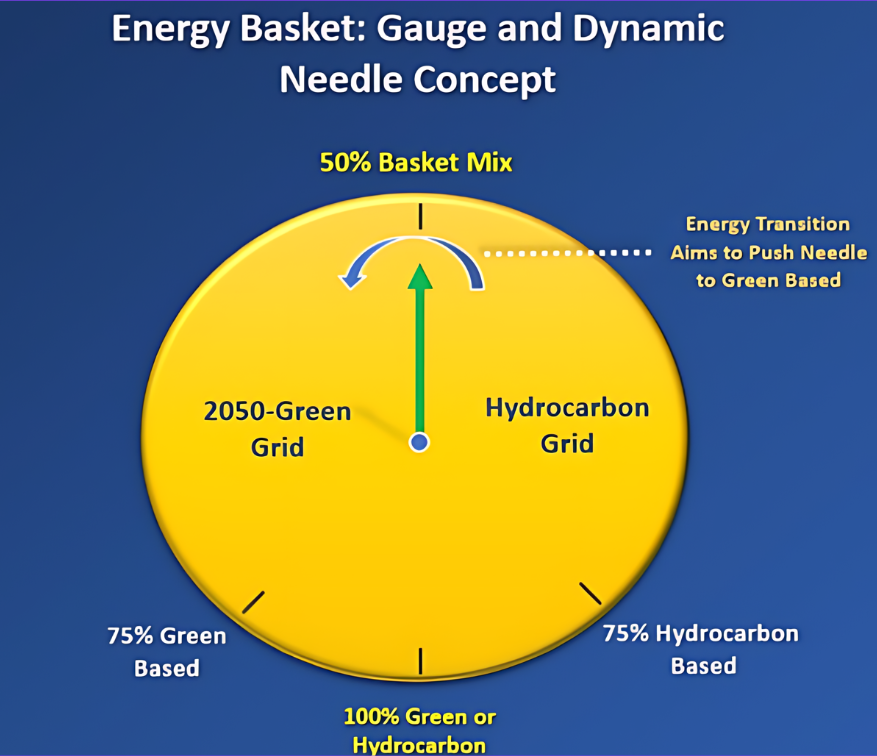· 5 min read
Amongst various bigger-picture, policy-level issues, none can rival climate change in terms of the scale of the problem and the complexity of its solution(s). Moreover, its consequences are impossible to list as the energy system is an example of a complex system where cause and effect cannot be traced – at least not easily. Other issues, such as equitable growth and intergenerational justice, also need to be addressed. This article focuses on, rather than reiterates, an often ignored but crucial point; that the solutions being proposed for decarbonization:
a) need to take into account the differences between economic, social, and political priorities of any country or region;
b) the concerns of the developing countries need to be highlighted and addressed. Finally, it proposes a possible solution that tackles both points in the form of an Energy Basket.
The scale of the crisis we face is undeniable: our planet's average temperature has risen by 1.1°C since the late 19th century. Sea levels are rising, and our oceans have become 30 percent more acidic since the days of the Industrial Revolution. April 2024 was the hottest April on record since the pre-industrial period (1850-1900), according to Copernicus Climate Change (C3S). As Mark Carney eloquently stated in his book Value(s), “Yesterday’s tail risk is becoming tomorrow’s central scenario.” It's crucial to note that we are rapidly approaching 2030, a significant milestone where 17 SDGs will expire, and we are lagging on most of them.
Developing countries, or the Global South, suffer disproportionately from the impact of the climate crisis and uncertain weather patterns. Pakistan, which is one of the top 10 most vulnerable countries to climate change, registered the wettest April since 1961 (60 years!), and the torrential rainfall claimed 144 lives. Pakistan suffered from floods of biblical proportions back in 2022 that cost around $30 bn in economic loss and impacted 33 million people, with half of them being children! I have extensively covered the disproportionate impact on poor countries, highlighting the criminal discrepancy between the carbon emissions from Developed and Developing countries. But I will risk repeating some of those points: According to a recent report by the World Bank, the 74 lowest-income countries are only responsible for 1/10th of total greenhouse emissions but will still suffer the most from climate change. Compared to the 1980s, the number of disasters these countries face has increased almost eightfold, and the crisis is expected to drag 130 million people into poverty by 2050. Another highly important and relevant aspect of climate change is its impact on food security, with the probability of crop failure increasing 4.5 times by 2030. From 1.7 billion people who suffer from water scarcity, the number is projected to rise to a staggering 5 billion by 2025. So on and so forth. The list of unfortunate developments hovering over the fate of upcoming generations in the Global South is unending.
Given that developing countries use over half of the world's total energy and their energy demand is expected to rise, it is crucial to consider their unique social, economic, and political contexts. Overall, 80 percent of the global population lives in the developing world. The issue of energy security in the developing world merits proper attention, discussion, and debate. Energy consumption per capita further reveals these disparities. For example, per capita electricity consumption in sub-Saharan Africa is less than 4 percent of Europe’s. Here is another one: More than 3 billion people in the world consume less electricity on an annual per capita basis than a standard refrigerator in the U.S. does – and this has been referenced by the great energy historian Daniel Yergin himself.
As such, the question that needs to be asked is this: is it fair to ask these countries – whose per capita energy consumption and carbon emissions are virtually non-existent when compared to those of advanced economies – to stop using fossil fuels? It would require pulling off a transition that even the developed world has failed to achieve despite having all the prerequisites: institutions, policies, technologies and most importantly, funding! At the same time, unbridled use of conventional energy resources cannot be encouraged so as not to distort the global narrative. It is precisely here where the idea of Energy Basket steps in. With its non-binary approach, it embraces the co-existence of different energy sources with a gradual, realistic move towards renewable/greener sources.

Source: The Energy Basket: A 21st Century Solution to the Energy Transition’s Rhetoric and Its Consequences, Hernandez (2022)
Therefore, it is the need of the hour to foster organizations that highlight and implement this inclusive mode of thinking when it comes to proposing solutions to the problem of climate change. In this regard, I am glad to be one of the founding board members of the Society for Low Carbon Technologies (SFLCT), which embraces this idea in principle (as it was initiated by Mr Fernando Hernandez, also the society's chairperson). I shall detail the society’s work and mandate in another article.
Only by working with both developing and developed countries can we forge a promising and possible future. Otherwise, if we continue to ignore these stark realities, they will haunt us in ways we cannot imagine.
illuminem Voices is a democratic space presenting the thoughts and opinions of leading Sustainability & Energy writers, their opinions do not necessarily represent those of illuminem.






